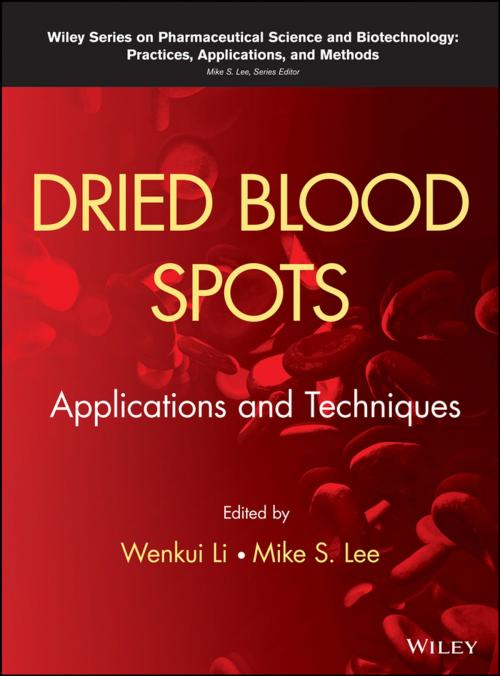Dried Blood Spots
Applications and Techniques
Nonfiction, Science & Nature, Science, Physics, Spectrum Analysis| Author: | ISBN: | 9781118890899 | |
| Publisher: | Wiley | Publication: | May 21, 2014 |
| Imprint: | Wiley | Language: | English |
| Author: | |
| ISBN: | 9781118890899 |
| Publisher: | Wiley |
| Publication: | May 21, 2014 |
| Imprint: | Wiley |
| Language: | English |
An informative and comprehensive book on the applications and techniques of dried blood spot sampling
Dried blood spot (DBS) sampling involves the collection of a small volume of blood, via a simple prick or other means, from a study subject onto a cellulose or polymer paper card, which is followed by drying and transfer to the laboratory for analysis. For many years, this method of blood sample collection has been extensively utilized in some important areas of human healthcare (for example, newborn screening for inherited metabolic disorders and HIV-related epidemiological studies). Because of its advantages over conventional blood, plasma, or serum sample collection, DBS sampling has been valued by the pharmaceutical industry in drug research and development.
Dried Blood Spots: Applications and Techniques features contributions from an international team of leading scientists in the field. Their contributions present a unique resource on the history, principles, procedures, methodologies, applications, and emerging technologies related to DBS.
Presented in three parts, the book thoroughly examines:
- Applications of DBS sampling and associated procedures and methodologies in various human healthcare studies
- Applications and perspectives of DBS sampling in drug research and development, and therapeutic drug monitoring
- New technologies and emerging applications related to DBS sampling and analysis
Dried Blood Spots: Applications and Techniques is a valuable working guide for researchers, professionals, and students in healthcare, medical science, diagnostics, clinical chemistry, and pharmaceuticals, etc.
An informative and comprehensive book on the applications and techniques of dried blood spot sampling
Dried blood spot (DBS) sampling involves the collection of a small volume of blood, via a simple prick or other means, from a study subject onto a cellulose or polymer paper card, which is followed by drying and transfer to the laboratory for analysis. For many years, this method of blood sample collection has been extensively utilized in some important areas of human healthcare (for example, newborn screening for inherited metabolic disorders and HIV-related epidemiological studies). Because of its advantages over conventional blood, plasma, or serum sample collection, DBS sampling has been valued by the pharmaceutical industry in drug research and development.
Dried Blood Spots: Applications and Techniques features contributions from an international team of leading scientists in the field. Their contributions present a unique resource on the history, principles, procedures, methodologies, applications, and emerging technologies related to DBS.
Presented in three parts, the book thoroughly examines:
- Applications of DBS sampling and associated procedures and methodologies in various human healthcare studies
- Applications and perspectives of DBS sampling in drug research and development, and therapeutic drug monitoring
- New technologies and emerging applications related to DBS sampling and analysis
Dried Blood Spots: Applications and Techniques is a valuable working guide for researchers, professionals, and students in healthcare, medical science, diagnostics, clinical chemistry, and pharmaceuticals, etc.















